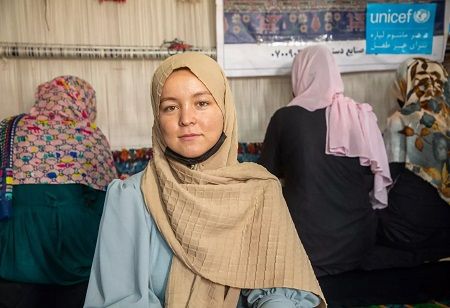- UNICEF, with Japan’s support, launches a 6-month vocational training in Herat for 200 Afghan women (15–25) banned from school under Taliban rule.
- Program teaches sewing & carpet-making to promote economic independence amid Afghanistan’s ongoing education crisis affecting 1M+ girls.
- Initiative offers a lifeline, addressing lost learning opportunities and empowering girls with practical skills for livelihood and resilience.
UNICEF has begun a six-month vocational training program in the Herat province to equip 200 young Afghan women, aged between 15 and 25, deprived of school education under the current Taliban ban. Sponsored in association with Japan and launched on International Youth Day, August 12, the scheme provides realistic skills of sewing and carpet-making to enable participants to earn livelihoods and financial sustainability in the absence of access to schools.
The vocational training comes on the heels of one of the world's most acute education crises.
Since the Taliban imposed the prohibition on girls' education after grade six, more than one million girls have been denied schooling, robbing them of futures in professions, higher education, and self-improvement. Backing this project, UNICEF highlights the pressing necessity of substitutes for mainstream education to counter the ruinous implications of the prohibition.
This initiative provides girls not just technical expertise but also the promise of economic independence and determination in the face of societal limitation.
This initiative comes after previous UNICEF actions to ensure community-based access to education, as a reaction to mounting educational challenges. Still, such options are limited in scope relative to the magnitude of the demand: millions of girls are left without any route for learning.
Also Read: E-Learning Trends Transforming the Landscape of Philippine Education
Internationally, the prohibition has been condemned en masse. UN organisations foretell long-term costs not just for Afghanistan's education system but for its healthcare system, economy, and well-being. Forecasts predict permanent prohibitions could lead to over four million girls being displaced from secondary and tertiary education by 2030, resulting in drastic drops in female health workers and increased maternal and infant death.
In these difficult circumstances, UNICEF's vocational training in Herat is a lifeline that provides instant relief and functional skills for a generation otherwise severed from the benefits of formal schooling. Through such skills as sewing and weaving, the program gives girls agency and sustenance, keeping alive the dreams of hundreds of Afghan girls for a brighter future.

